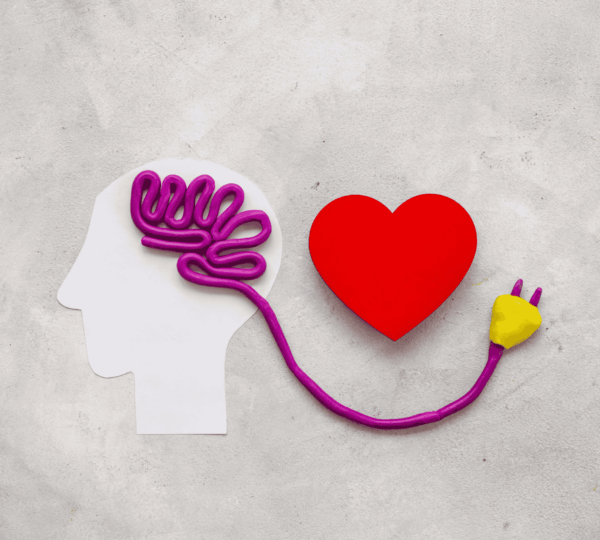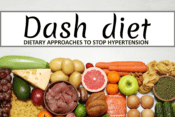
Beyond Weight Loss: How 2025’s Top Diets Improve Overall Health and Longevity
Dr. Amelia Chen stared out the window of her office at Horizon Health Institute, her eyes unfocused on the bustling city below. As a leading nutritionist and researcher, she had dedicated her career to understanding the intricate relationship between diet and human health. But today, she felt a gnawing sense of frustration.
Despite decades of research and countless diet plans, the global health crisis seemed to be worsening. Obesity rates were climbing, chronic diseases were on the rise, and life expectancy in many developed countries had plateaued or even declined. Something was missing in their approach.
As she turned back to her desk, her gaze fell on a framed photo of her grandmother, who had lived to the remarkable age of 103. Amelia smiled, remembering her grandmother’s vibrant energy and sharp mind, even in her final years. What was her secret?
Suddenly, a thought struck her. What if they had been asking the wrong questions all along? What if the key to health and longevity wasn’t just about weight loss or treating individual diseases, but about nourishing the body holistically?
Energized by this new perspective, Amelia dove into her research with renewed vigor. She pored over the latest studies, analyzed data from centenarian populations around the world, and collaborated with experts in various fields of medicine and nutrition.
As the calendar turned to 2025, Dr. Chen and her team were ready to present their groundbreaking findings. They had identified several dietary approaches that not only promoted weight management but also significantly improved overall health and longevity. These weren’t just diets; they were comprehensive lifestyle approaches that addressed multiple aspects of health simultaneously.
As Amelia prepared for the press conference that would share these discoveries with the world, she felt a surge of hope. This could be the paradigm shift that modern healthcare desperately needed – a holistic approach to nutrition that could transform lives and reshape the future of global health.
Little did she know, her research was about to spark a revolution in how we think about food, health, and longevity…
In this comprehensive guide, we’ll explore how the leading diets of 2025 are revolutionizing our approach to health and longevity. We’ll delve into the science behind these eating patterns, their benefits beyond weight loss, and practical tips for incorporating them into your life. Whether you’re looking to boost your energy, improve your heart health, or simply live a longer, more vibrant life, this guide will provide you with the knowledge and tools you need to succeed.
The Mediterranean Diet: A Time-Tested Approach to Longevity
The Mediterranean diet has consistently topped the list of healthiest diets for years, and 2025 is no exception. With a remarkable rating of 4.8 out of 5 stars, this eating pattern continues to impress health experts and researchers alike25.
What is the Mediterranean Diet?
The Mediterranean diet is less of a structured eating plan and more of a lifestyle approach based on the traditional eating habits of countries bordering the Mediterranean Sea. It emphasizes:
- Abundant consumption of fruits, vegetables, and whole grains
- Healthy fats, particularly olive oil
- Moderate intake of fish, poultry, and dairy
- Limited red meat consumption
- Moderate red wine consumption (optional)
Health Benefits Beyond Weight Loss
While the Mediterranean diet can certainly aid in weight management, its benefits extend far beyond the scale:
- Heart Health: Numerous studies have shown that the Mediterranean diet significantly reduces the risk of heart disease and stroke. A landmark study found that women following this diet had a 25% lower risk of developing cardiovascular disease over 25 years6.
- Diabetes Prevention and Management: The diet’s emphasis on whole grains, healthy fats, and plant-based foods helps regulate blood sugar levels, reducing the risk of type 2 diabetes and aiding in its management.
- Cognitive Function: Research suggests that the Mediterranean diet may slow cognitive decline and reduce the risk of Alzheimer’s disease. The diet’s high content of antioxidants and healthy fats is believed to protect brain cells from damage.
- Cancer Prevention: While more research is needed, some studies indicate that the Mediterranean diet may reduce the risk of certain types of cancer, particularly colorectal cancer.
- Longevity: Perhaps most impressively, adherence to the Mediterranean diet has been associated with increased lifespan. The diet’s anti-inflammatory properties and emphasis on whole, nutrient-dense foods contribute to overall health and longevity.
Implementing the Mediterranean Diet
Emma decided to start her health journey with the Mediterranean diet. Here are some tips she found helpful:
- Start by incorporating more vegetables into your meals. Aim for at least 5-7 servings per day.
- Switch to olive oil as your primary cooking fat.
- Include fish in your diet at least twice a week.
- Snack on nuts and seeds instead of processed snacks.
- Enjoy fresh fruits for dessert rather than sugary treats.
- If you choose to drink alcohol, opt for a glass of red wine with meals (in moderation).
The DASH Diet: Combating Hypertension and Beyond
Ranked second with a 4.6 out of 5 rating, the DASH (Dietary Approaches to Stop Hypertension) diet has proven its worth in promoting heart health and overall well-being25.
What is the DASH Diet?
The DASH diet was originally developed to lower blood pressure without medication. It emphasizes:
- Fruits, vegetables, and whole grains
- Lean proteins, particularly poultry and fish
- Low-fat or fat-free dairy products
- Limited sodium intake
- Reduced consumption of saturated fats and added sugars
Health Benefits Beyond Weight Loss
While effective for weight management, the DASH diet offers numerous other health benefits:
- Blood Pressure Regulation: As its name suggests, the DASH diet is highly effective in lowering blood pressure, often as effectively as some medications.
- Heart Disease Prevention: By reducing sodium intake and emphasizing heart-healthy foods, the DASH diet significantly lowers the risk of heart disease.
- Diabetes Management: The diet’s focus on whole grains and limited sugar intake helps regulate blood glucose levels, making it beneficial for those with or at risk of diabetes.
- Kidney Health: The DASH diet’s controlled sodium and protein intake can help prevent kidney disease and slow its progression in those already affected.
- Bone Health: Rich in calcium and other bone-strengthening nutrients, the DASH diet may help prevent osteoporosis.
Implementing the DASH Diet
Emma’s friend, who had a family history of hypertension, found success with the DASH diet. Here are some tips she shared:
- Gradually reduce your sodium intake to 2,300 mg per day (or 1,500 mg if advised by your doctor).
- Include 4-5 servings each of fruits and vegetables daily.
- Choose whole grains over refined carbohydrates.
- Limit red meat to once or twice a week, opting for lean poultry and fish instead.
- Include 2-3 servings of low-fat dairy products daily.
- Snack on unsalted nuts and seeds.
The Flexitarian Diet: Balancing Plant-Based Benefits with Flexibility
Ranked third with a 4.5 out of 5 rating, the flexitarian diet offers a balanced approach to healthy eating that’s gaining popularity in 202523.
What is the Flexitarian Diet?
The flexitarian diet, a combination of “flexible” and “vegetarian,” encourages primarily plant-based eating while allowing for occasional meat consumption. It emphasizes:
- Plant-based proteins like legumes, tofu, and tempeh
- Fruits and vegetables
- Whole grains
- Plant-based milk alternatives
- Eggs and dairy (in moderation)
- Meat and fish (occasionally)
Health Benefits Beyond Weight Loss
The flexitarian diet offers a range of health benefits:
- Heart Health: By reducing meat consumption and increasing plant-based foods, the flexitarian diet can lower the risk of heart disease.
- Diabetes Prevention: Studies have shown that semi-vegetarian diets like the flexitarian approach can reduce the risk of type 2 diabetes.
- Cancer Prevention: Some research suggests that reducing meat intake and increasing plant-based food consumption may lower the risk of certain cancers.
- Improved Gut Health: The high fiber content of the flexitarian diet promotes a healthy gut microbiome, which is linked to numerous health benefits.
- Environmental Sustainability: While not directly a health benefit, the reduced meat consumption in the flexitarian diet contributes to environmental sustainability, which has long-term implications for global health.
Implementing the Flexitarian Diet
Emma’s colleague, a busy working mother, found the flexitarian diet to be a perfect fit. Here are some tips she shared:
- Start with Meatless Mondays and gradually increase plant-based meals throughout the week.
- Experiment with plant-based proteins like lentils, chickpeas, and tofu.
- When you do eat meat, choose high-quality, lean options in smaller portions.
- Make vegetables the star of your plate, using meat as a side dish or garnish.
- Try plant-based milk alternatives like almond or oat milk.
The MIND Diet: Nourishing Your Brain for Cognitive Health
While not in the top three, the MIND (Mediterranean-DASH Intervention for Neurodegenerative Delay) diet deserves special mention for its focus on brain health and cognitive function3.
What is the MIND Diet?
The MIND diet combines elements of the Mediterranean and DASH diets, specifically focusing on foods that support brain health. It emphasizes:
- Green leafy vegetables
- Other vegetables
- Berries (especially blueberries)
- Nuts
- Olive oil
- Whole grains
- Fish
- Beans
- Poultry
- Wine (in moderation)
Health Benefits Beyond Weight Loss
The MIND diet offers specific benefits for brain health and cognitive function:
- Reduced Risk of Alzheimer’s: Studies have shown that strict adherence to the MIND diet can lower the risk of Alzheimer’s disease by up to 53%.
- Slowed Cognitive Decline: Research indicates that following the MIND diet can slow cognitive decline equivalent to being 7.5 years younger.
- Improved Memory: The diet’s emphasis on brain-boosting foods may help improve memory and cognitive function.
- Stroke Prevention: The MIND diet has been associated with a reduced risk of stroke.
- Overall Brain Health: By combining brain-healthy elements of the Mediterranean and DASH diets, the MIND diet supports overall brain health and function.
Implementing the MIND Diet
Emma’s aunt, concerned about her family history of dementia, adopted the MIND diet. Here are some tips she found helpful:
- Aim for at least six servings of green leafy vegetables per week.
- Eat berries (especially blueberries) at least twice a week.
- Use olive oil as your primary cooking oil.
- Snack on nuts daily.
- Consume fish at least once a week.
- Limit red meat, cheese, and fried foods.
Common Threads: Key Principles for Health and Longevity
As Emma delved deeper into these top diets of 2025, she noticed several common threads that seemed to be key to improving overall health and longevity:
- Emphasis on Plant-Based Foods: All of these diets prioritize fruits, vegetables, whole grains, and plant-based proteins. These foods are rich in vitamins, minerals, antioxidants, and fiber, which contribute to overall health and disease prevention.
- Healthy Fats: The top diets emphasize healthy fats, particularly from sources like olive oil, nuts, and fatty fish. These fats are crucial for heart and brain health.
- Limited Processed Foods: Each diet recommends limiting or avoiding highly processed foods, which are often high in unhealthy fats, added sugars, and sodium.
- Moderate Protein Intake: While protein sources vary among the diets, they all recommend moderate protein intake, with an emphasis on lean or plant-based sources.
- Flexibility and Sustainability: These diets are not rigid regimens but flexible eating patterns that can be adapted to individual preferences and cultural backgrounds, making them sustainable long-term.
Practical Tips for Adopting a Healthy Eating Pattern
Inspired by her research, Emma decided to incorporate elements from each of these diets into her lifestyle. Here are some practical tips she found helpful:
- Start Small: Don’t try to overhaul your entire diet overnight. Begin with small changes, like adding an extra serving of vegetables to your daily meals.
- Plan Your Meals: Take time each week to plan your meals. This can help you ensure you’re including a variety of nutrient-dense foods and avoid falling back on unhealthy convenience options.
- Cook at Home: Preparing meals at home gives you control over ingredients and portion sizes. Experiment with new recipes that align with your chosen eating pattern.
- Stay Hydrated: Don’t forget about the importance of hydration. Water should be your primary beverage, with moderate consumption of other drinks like coffee, tea, and wine (if included in your chosen diet).
- Practice Mindful Eating: Pay attention to your food while eating. Eat slowly, savor each bite, and listen to your body’s hunger and fullness cues.
- Allow for Treats: Remember that a healthy diet doesn’t mean never enjoying your favorite foods. Allow for occasional treats to maintain a balanced and sustainable approach.
- Get Moving: While not directly related to diet, regular physical activity is crucial for overall health and longevity. Find ways to incorporate movement into your daily routine.
The Future of Healthy Eating: Personalization and Technology
As Emma continued her health journey, she became excited about the future of nutrition and healthy eating. In 2025, several trends are shaping the way we approach diet and health:
- Personalized Nutrition: Advances in genetic testing and microbiome analysis are allowing for more personalized dietary recommendations. In the future, we may see diets tailored to individual genetic profiles and gut bacteria compositions.
- Technology Integration: Apps and wearable devices are making it easier to track food intake, monitor health markers, and receive real-time nutrition advice. These tools can help individuals stay on track with their chosen eating patterns.
- Sustainable Eating: With growing concerns about climate change, there’s an increasing focus on diets that are not only healthy for individuals but also sustainable for the planet.
- Functional Foods: There’s growing interest in foods that offer benefits beyond basic nutrition, such as probiotics for gut health or omega-3 enriched eggs for heart health.
- Mind-Body Connection: There’s increasing recognition of the connection between diet, mental health, and overall well-being. Future dietary approaches may place more emphasis on foods that support mental health and stress reduction.
Conclusion: A Journey to Health and Longevity
As Emma reflected on her journey, she realized that adopting a healthy eating pattern was about more than just losing weight or following a set of rules. It was about nourishing her body, supporting her long-term health, and enhancing her quality of life.
By incorporating elements from the Mediterranean, DASH, Flexitarian, and MIND diets, Emma found a way of eating that not only helped her shed those extra pounds but also gave her more energy, improved her mood, and made her feel more vibrant and alive. She no longer saw her diet as a restriction, but as a way to fuel her body and mind for a long, healthy life.
Remember, the journey to health and longevity is personal and unique for everyone. The best diet is one that you can stick to long-term, that aligns with your personal health goals and cultural preferences, and that makes you feel your best. Whether you choose to follow one of these top diets of 2025 or create your own combination, the key is to focus on whole, nutrient-dense foods that nourish your body and support your overall health.
As we look to the future, it’s clear that our understanding of nutrition and its impact on health and longevity will continue to evolve. By staying informed, being open to new ideas, and listening to your body, you can navigate this exciting field and find an eating pattern that supports your health and longevity for years to come.
Here’s to your health, vitality, and a long, vibrant life!
References:
1 https://www.healthline.com/health-news/healthy-ways-to-improve-longevity
2 https://www.businessinsider.com/mediterranean-diet-best-healthy-eating-longevity-rankings-2025-1
3 https://www.goodhousekeeping.com/health/diet-nutrition/a63249501/best-diets-of-2025/
4 https://www.medicalnewstoday.com/articles/3-ways-to-boost-longevity-in-2025
5 https://www.cbsnews.com/news/mediterranean-diet-dash-flexitarian-ranks-healthiest-2025/
6 https://globalnews.ca/news/10939737/2025-diets-what-to-know/
7 https://newsukraine.rbc.ua/news/best-diets-for-health-and-longevity-in-2025-1736248099.html
8 https://food.ndtv.com/health/best-4-diets-for-good-health-and-weight-management-in-2025-ranked-7429358
Disclaimer: The information provided in this article is for educational purposes only and should not be considered medical advice. Always consult with a healthcare professional or registered dietitian before making significant changes to your diet, especially if you have pre-existing health conditions or are taking medications. Your individual nutritional needs may vary, and what works for one person may not be suitable for another.













